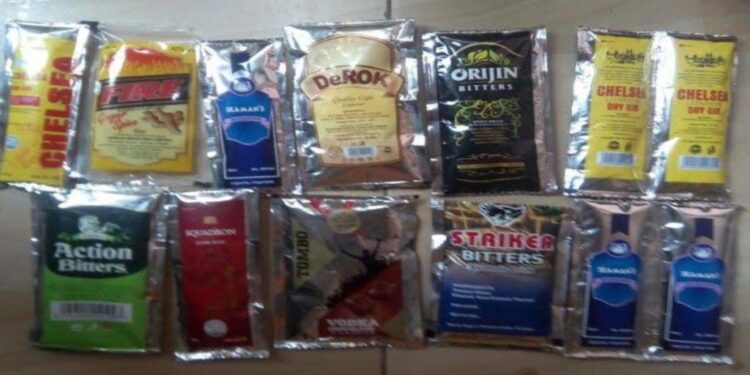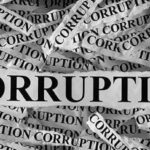
THE recent enforcement of the ban by the National Agency for Food and Drug Administration and Control on the sale of alcoholic beverages in small sachets is a bold step to arrest the growing culture of alcoholism in Nigeria at its roots. On February 1, NAFDAC had commenced the enforcement of the ban across the country. Despite opposition from some sections of society, the regulator must be resolute in its enforcement.
After a period of moratorium, NAFDAC pronounced the ban on the production, manufacture, distribution, sale, and use of alcoholic beverages in sachets, pet, and glass bottles of 200ml and below this month. Before using the big stick, NAFDAC said it duly engaged the stakeholders, including distilleries, from January 2022. The moratorium period is long enough for compliance. Strict enforcement should be implemented to rid the streets, kiosks, marketplaces, parks, and garages of sachet and pet-bottle alcoholic drinks.
On this, NAFDAC has a sound basis. It argues that the ban is urgent because it abets under-age children, commercial vehicle drivers, and riders to abuse alcohol recklessly. Quoting the WHO, the Director-General, Moji Adeyeye, stated that “children who drink alcohol are more likely to use drugs, get bad grades, suffer injury or death, engage in risky sexual activity, make bad decisions and have health problems.” This is frightening.
Despite NAFDAC’s position, the Distillers and Blenders Association of Nigeria has kicked against the ban. But NAFDAC is on a solid footing, given the gross societal and environmental damage being caused by the manufacturing and proliferation of pouch-sized alcoholic drinks. The distillers and blenders should look beyond the pecuniary gains they make from the business.
Although the legal drinking age in the country is 18, alcohol abuse is commonplace among many underage boys and girls in the country, who easily purchase sachet alcohol for as low as N100. This is beyond business; it is a social menace with frightening implications. The police should support NAFDAC to clamp down on garages, kiosks, shops, and makeshift spaces, where sachet alcohol and other harmful substances are being sold. Only compliant bars should be allowed to sell alcohol to adults.
A 2019 report by scientific journal BMC Public Health, while referring to the 2014 Global Status Report on alcohol and health by WHO revealed that Nigeria ranked 27th globally in respect of adult alcohol drinking (age 15+) in litres per year. This made it one of the leading African countries in alcohol consumption. It stated that episodic heavy drinking of alcohol caused liver cirrhosis, cancer, high vehicular fatalities, and trauma to family members due to medical bills, among others. The WHO links reckless alcoholism to more than 200 health conditions, including tuberculosis and HIV/AIDS.
Also, pet bottles and sachet alcohol are produced with single-use plastics and nylon, which contribute to the scourge of unrecyclable waste in the country. This constitutes environmental nuisance by clogging drainage. It breaks down into micro-plastics in the water systems, thereby affecting flora, fauna, fish, and human lives. To save the day, Lagos and Abia states have banned the use of single-use plastics.
Studies show that sachet alcoholic beverages are prevalent in low-income African and some Asian countries. But in Europe and America, strict regulations have restricted the availability of alcohol in cans and bottles.
The clampdown is long overdue. Drunk drivers have caused avoidable deaths and injuries. Criminals have been buoyed by it to cause havoc. The Lagos State Government, which has banned the sale of alcohol at its motor parks, should revive the enforcement and other states should sanitise their parks.
The clampdown on the production and use of sachet alcohol by NAFDAC is a strategic move. It needs all hands on deck for support.
The police should acquire the tools to arrest drivers/riders who consume alcohol before taking to the wheels.













